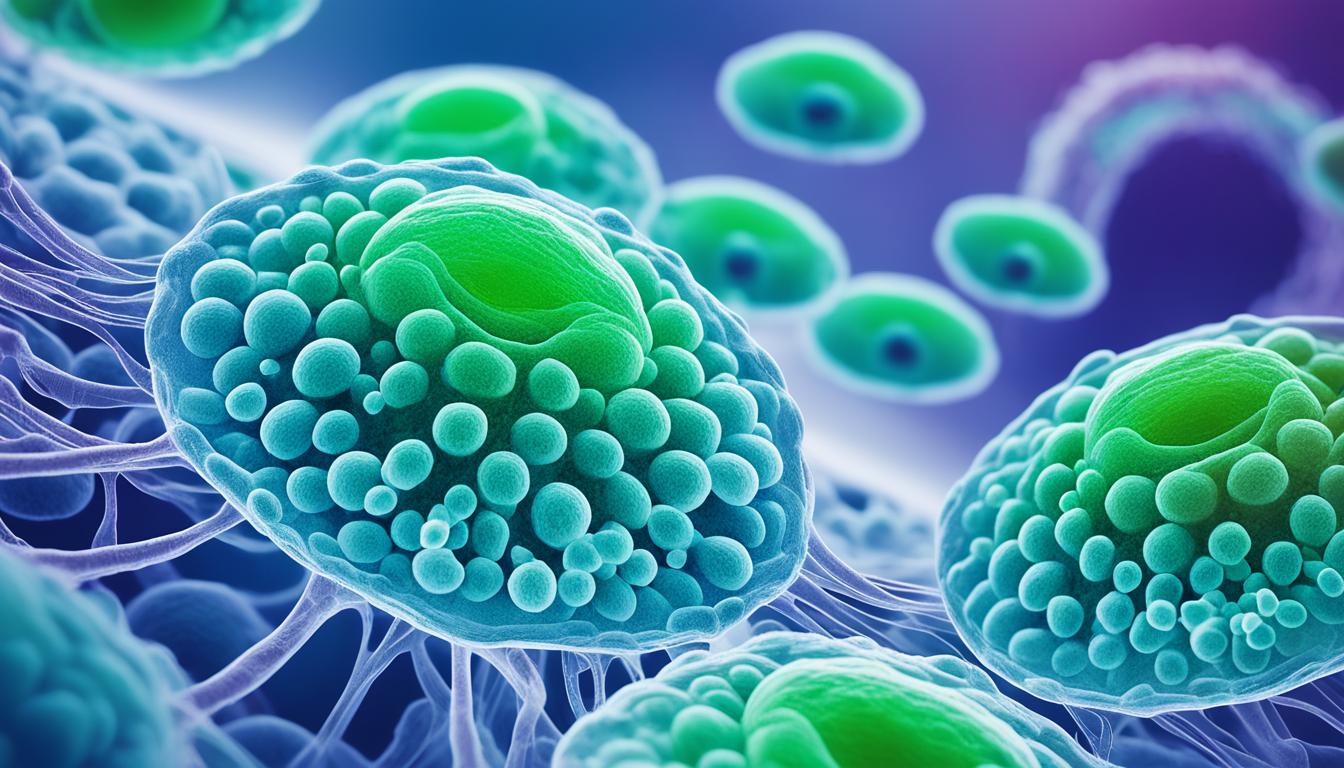Colon polyps are small masses of cells growing on the colon lining. They’re mostly harmless but can lead to colon cancer. Getting checked with a colonoscopy can help find and remove them early. Knowing about the symptoms, causes, and how to diagnose colon polyps is key to stopping cancer.
Common signs of colon polyps are blood in the stool, poop changes, different stool colors, stomach ache, throwing up, and being weak. But, some polyps don’t show symptoms. This is why having regular check-ups is important.
The main cause of colon polyps isn’t clear. Yet, some things can make you more likely to have them. This includes being over 50, having family members with colon issues, smoking, being overweight, and having certain health problems.
To check for colon polyps, doctors may do a colonoscopy, CT scan, or a special X-ray of the colon. If they spot polyps during a colonoscopy, they might remove and test them right away. Catching and treating polyps early stops them from turning into cancer.
Treating colon polyps often means taking them out during tests or small surgeries. After that, it’s important to keep an eye on your health with check-ups to look for new polyps or signs of cancer.
Stem cell therapy is a new way to treat many health problems, even colon polyps. In Thailand, doctors are using stem cells to fix colon tissue. This could lower the chance of getting polyps and cancer.
Key Takeaways:
- Colon polyps are small masses of cells that form on the lining of the colon.
- Regular screenings, such as colonoscopy, are important for early detection and removal of colon polyps.
- Symptoms of colon polyps can include bleeding from the rectum, changes in bowel habits, changes in stool color, abdominal pain, nausea, vomiting, and anemia.
- Age, family history of colon cancer or polyps, smoking, obesity, and certain medical conditions can increase the likelihood of developing colon polyps.
- Diagnostic methods for colon polyps include colonoscopy, CT scan, and contrast X-ray of the colon.
- Stem cell therapy in Thailand has emerged as an advanced treatment option.
Types of Colon Polyps and Their Malignancy Potential
Colon polyps come in different kinds with varying risks of turning cancerous. It’s key to know these types to treat and diagnose properly.
Adenomatous Polyps
Adenomatous polyps are very common in the colon. They’re more likely to turn into cancer than other types. Things like the polyp’s size, how many there are, and the cells’ structure affect their cancer risk.
Genetic Adenomatous Polyp Syndromes
Some rare genetic diseases, like familial adenomatous polyposis (FAP) and MYH polyposis syndrome, can lead to many polyps and cancer. Genetic tests can spot these conditions before symptoms show. This allows for early, effective treatment.
Hyperplastic Polyps
Hyperplastic polyps are the next most common type. Normally, they have a low chance of becoming cancer. But, if they’re in a certain part of the colon or have specific patterns, their cancer risk goes up.
Other Less Common Types
Less common colon polyps include hamartomatous, juvenile, and inflammatory polyps. Each type has its own risk of cancer. They need close watch and possibly treatment.
Knowing about different colon polyps and their cancer risks is crucial for doctors. They can then decide if the polyps need monitoring, removal, or more tests. Catching and treating polyps early is essential to stop colon cancer.
Conclusion
Spotting and getting rid of colon polyps early is very important. By having regular check-ups like colonoscopies, we can stop polyps in their tracks.
If you find polyps, they can usually be taken out easily. Doctors might use surgery that’s not too invasive. Sometimes the colon and rectum need to be removed, but this is rare. When polyps are removed, bleeding and a tear in the colon are possible risks.
To stay polyp-free, live a healthy life. Stop smoking and limit your alcohol. Keep a good weight and eat lots of fruits, veggies, and calcium. Taking a little aspirin and staying active can also lower your polyp risk.
To sum it up, catching and dealing with colon polyps early, along with a healthy lifestyle, is the best plan. Lessening your polyp risk also means you’re less likely to get colon cancer.

